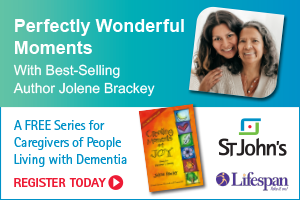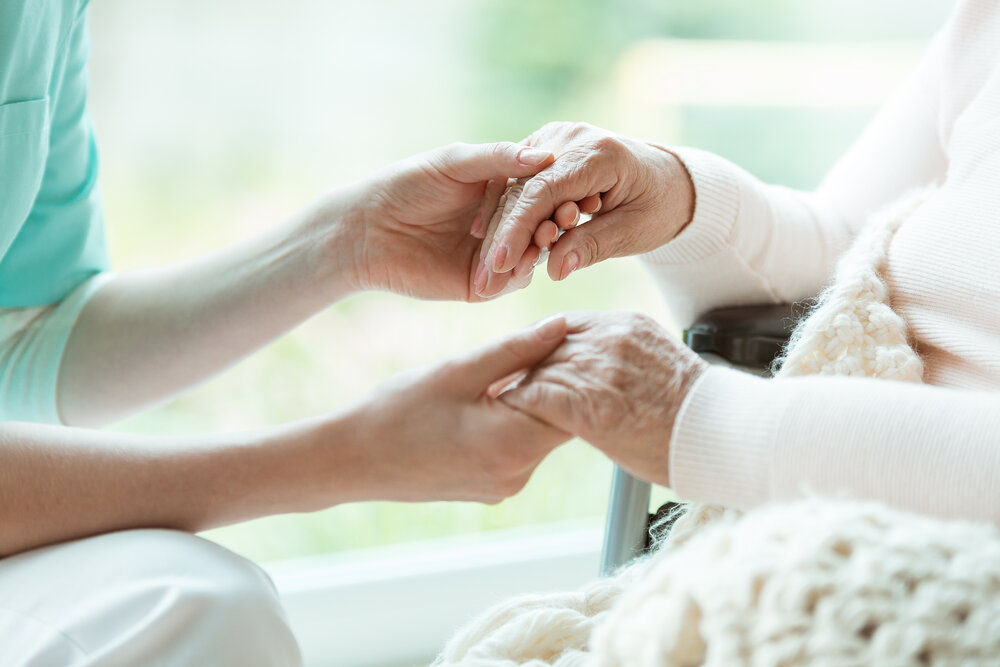Throughout the holidays most of us spend quality time with family– often seeing each other for the first time in months. This time together in close proximity can shed light on the progression of your loved one’s memory decline. As an adult child who may be visiting a parent living with dementia, seeing your parent’s state may bring on emotions of sadness, anxiety, and concern for what is to come. Though the holidays are typically a joyous time, it is crucial to be proactive as soon as you see signs of cognitive decline in your loved one.

Be Observant During the Holidays
It can be difficult to notice the signs when your loved one is in need of more dementia care, especially when you are an adult child seeing your parent, your caregiver throughout life, slowly lose parts of themselves. Below are seven signs to be aware of when considering further dementia care for a loved one:
- Your loved one has difficulty performing common, everyday activities. Perhaps she/she has not bathed lately or they does not seem to be eating regularly. Instances like these can result in more health issues if prolonged.
- The person has a change in behavior and personality. Outbursts of agitation and aggression can intensify with time and can negatively impact your loved one and family.
- Your loved one has begun having hallucinations and/or delusions. These moments can put your loved one in danger of wandering or harm, as the visions appear to be very realistic in his/her mind.
- Falls can also be more prevalent. Loss of balance is common, as well as wandering to terrain that can be uneven. If left unsupervised, this can result in falls.
- Something as simple as declining your offer to drive them to a doctor appointment could be a sign to dig deeper.
- An inability to go back over one’s steps or frequently putting things in unusual places can result in a person with beginning signs of dementia to accuse others of stealing. This behavior can increase in frequency over time.
- Mobility and other physical health attributes tend to decline rapidly in the later stages of dementia; therefore paying close attention to your loved one’s physical health as well as his/her cognitive health is important in determining a care plan.
- With loss of memory and control, you may notice that your loved one is depressed and lonely. Perhaps, he/she does not seem excited for holiday traditions once loved. A sense of isolation is a common side effect in dementia and it tends to only grow as the disease progresses.
- Decisions related to a healthy lifestyle, such as those involving personal hygiene or grooming, may be neglected abnormally. Areas of the brain involved with the understanding of what is fair and reasonable can also be impacted significantly.
- Significant problems with language skills. Challenges with joining in conversations; stopping abruptly in the middle of speaking for no apparent reason; or difficulty being coherent in the written form due to handwriting or grammar/punctuation deficiencies; can all indicate cognitive decline.
Learn more about the early signs of dementia: Tool for Determining the Early Signs of Dementia – Dementia Resource Center

Next Steps in Dementia Care
Talking with other family members, experts, and your loved one’s doctor can aid you in the next steps of their dementia care. It is important to remember that the progression of the disease does not always happen laterally and can change or progress at varying rates. It is encouraged that you have an open mind and keep your expectations reasonable and flexible.
This stage can bring up some tough questions. Where should my loved one go? Do I have the capabilities to be a caregiver? Is my loved one still the same person? What should I do with the house?
Having those questions and others like them is entirely valid and encouraged to be voiced. This enables you to have the necessary conversations around finding the right type of care for your loved one.
Maybe your loved one only needs minor assistance with which you or another family member can assist, like stopping by to cook meals or writing lists to help your loved one stick to a daily plan.
Your loved one might benefit from day programs catered to those with dementia. This anable the person to have a sense of purpose as well as supervision.
You may realize an at-home caregiver is necessary, whether that be through an agency, or by a family member.
If your loved one is further along in his/her dementia journey, a 24-hour care community specializing in dementia care may be the best choice.
You want what is best for your loved one and seeing the progression of an illness during the holidays can bring on a lot of stress for everyone involved. Being aware of all the possibilities and taking a look at the current state with an objective eye can help you and your loved one.









